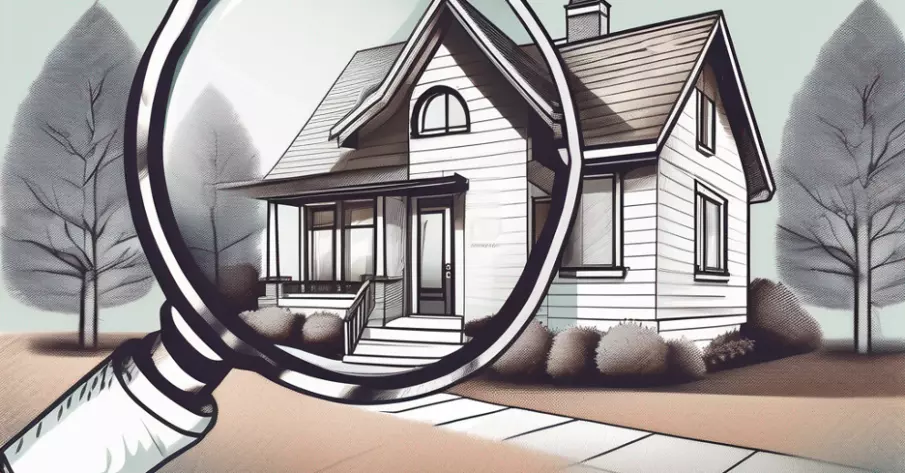Real Estate Education: Preparing for Appraisal Challenges

Learn how to navigate the complexities of real estate appraisal challenges with our comprehensive guide to real estate education.
In the dynamic world of real estate, appraisal challenges are a common occurrence. As a real estate professional, it is crucial to be well-prepared to navigate these challenges effectively. This preparation begins with comprehensive real estate education, focusing on understanding the appraisal process, the common challenges that arise, and the strategies to overcome them.
Understanding the Appraisal Process
The appraisal process is a critical component of any real estate transaction. It involves an objective evaluation of a property's value by a licensed appraiser. This value is determined based on a variety of factors, including the property's physical characteristics, its location, and recent sales of comparable properties in the area.
Understanding the appraisal process is the first step toward preparing for appraisal challenges. It provides a foundation for identifying potential issues and developing effective strategies to address them. This understanding can be gained through formal real estate education, there are some guides on New York state real estate license, that can help you prepare, as well as practical experience in the field.
The Role of the Appraiser
The appraiser plays a pivotal role in the appraisal process. They are responsible for conducting a thorough inspection of the property, analyzing relevant data, and compiling a detailed report that outlines their findings and conclusions.
As a real estate professional, it is important to understand the role of the appraiser and the standards they are required to uphold. This understanding can help you anticipate potential challenges and work collaboratively with the appraiser to ensure a fair and accurate valuation.
Understanding Appraisal Methods
There are several methods that appraisers use to determine a property's value. The most common methods are the sales comparison approach, the cost approach, and the income approach.
Understanding these methods and when they are used can help you prepare for appraisal challenges. For example, if a property is unique and there are no comparable sales in the area, the appraiser may need to use the cost approach, which can result in a lower valuation. By understanding this, you can proactively address this challenge by providing additional data or context to support a higher valuation.
Common Appraisal Challenges
Despite the best efforts of all parties involved, appraisal challenges can and do occur. These challenges can range from disagreements about the property's value to issues with the appraisal report itself.
Being aware of the common appraisal challenges can help you anticipate them and develop strategies to address them effectively. This awareness can be gained through real estate education, as well as practical experience in the field.
Disagreements About Value
One of the most common appraisal challenges is a disagreement about the property's value. This can occur when the seller, buyer, or real estate agent believes the appraised value is too low or too high.
Addressing this challenge requires a thorough understanding of the appraisal process and the factors that influence a property's value. It may also involve providing additional data or context to support a different valuation.
Issues with the Appraisal Report
Another common appraisal challenge is issues with the appraisal report itself. This can include errors or omissions, a lack of clarity, or a perceived bias on the part of the appraiser.
Addressing these challenges requires a careful review of the appraisal report and a clear understanding of the standards that appraisers are required to uphold. It may also involve requesting a review or reconsideration of the appraisal, or in some cases, ordering a new appraisal.
Strategies for Overcoming Appraisal Challenges
While appraisal challenges can be complex and difficult to navigate, there are several strategies that can help you overcome them effectively. These strategies involve proactive communication, thorough preparation, and a commitment to fairness and accuracy.
Implementing these strategies requires a solid foundation of real estate education, as well as the ability to adapt and respond to the unique circumstances of each appraisal challenge.
Proactive Communication
One of the most effective strategies for overcoming appraisal challenges is proactive communication. This involves communicating openly and honestly with all parties involved, including the appraiser, the buyer, and the seller.
Proactive communication can help prevent misunderstandings, resolve disagreements, and ensure that all parties are working towards a fair and accurate valuation.
Thorough Preparation
Another important strategy is thorough preparation. This involves gathering all relevant data and information about the property, understanding the appraisal process and methods, and anticipating potential challenges.
Thorough preparation can help you address challenges proactively, provide a strong case for your valuation, and ensure a smoother appraisal process.
Commitment to Fairness and Accuracy
A commitment to fairness and accuracy is a fundamental principle in the appraisal process. This involves upholding the highest standards of integrity, providing accurate and unbiased information, and respecting the role and expertise of the appraiser.
This commitment can help build trust, resolve disputes, and ensure a fair and accurate valuation that reflects the true value of the property.
Conclusion
Appraisal challenges are an inevitable part of the real estate process. However, with comprehensive real estate education and a proactive approach, these challenges can be effectively navigated and overcome.
By understanding the appraisal process, being aware of common challenges, and implementing effective strategies, you can ensure a fair and accurate valuation and a successful real estate transaction.
More to Read:
Previous Posts:




